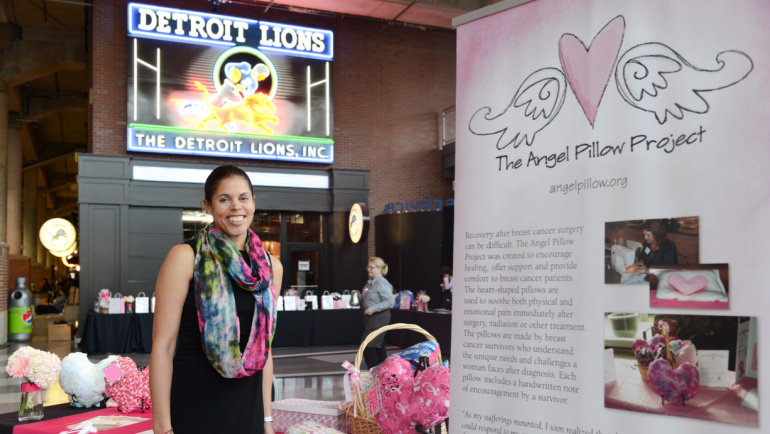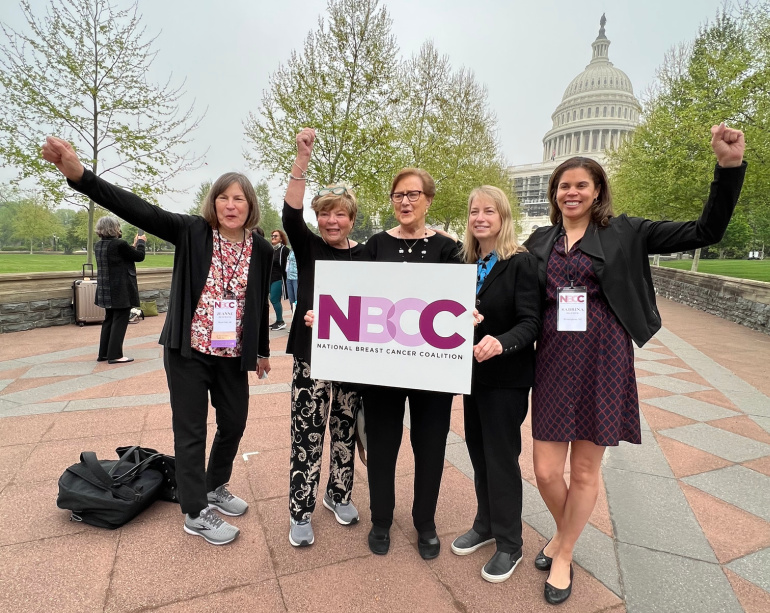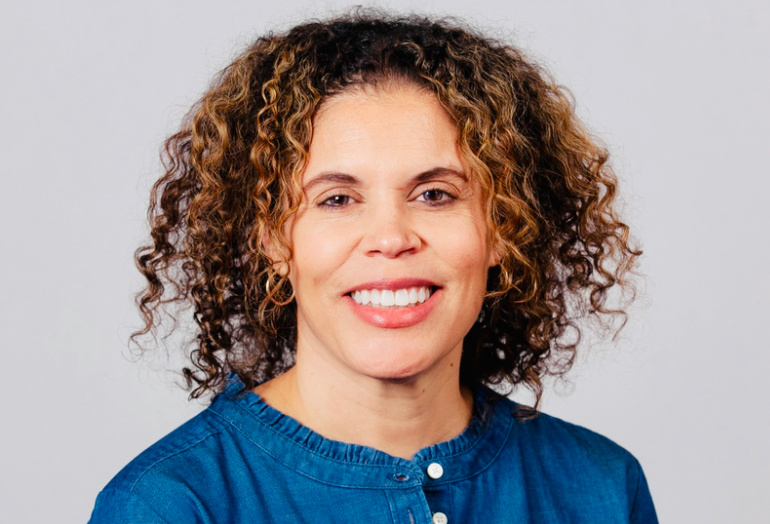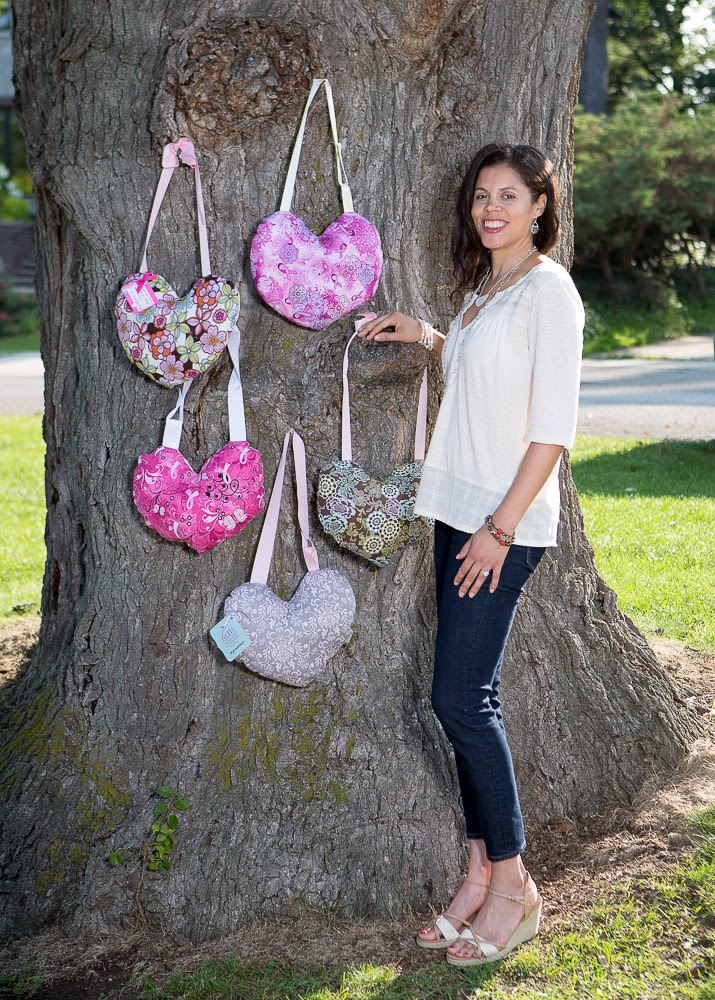
Sabrina Mayhew would never call having breast cancer a blessing, but she does feel it changed the course of her life in a good way. She’s now an advocate for breast cancer patients and, as a breast cancer survivor, she is in a unique position to know what those patients need.
“For me, it’s really about helping other people,” Mayhew said. “I’m a strong believer that I benefitted from my breast cancer. Having breast cancer was a life-changing moment for me, but it changed my life for the better and I started getting involved with advocacy and all these amazing people.
“Going through breast cancer is horrible — I wouldn’t wish it on anyone. But for me, I was able to take the focus off myself and dedicate my life to helping others, and it really helped me grow as a person. It gave me a purpose in life. Before my diagnosis, I was kind of struggling with, ‘What am I supposed to be doing and what are my goals?’ Now, I know we can help other people get through something as difficult as a cancer diagnosis.”

Becoming an advocate also motivated Mayhew to enroll at Wayne State and earn her Ph.D. in nursing, which she recently completed and celebrated at May’s commencement ceremonies.
Mayhew’s dissertation was on “The Lived Experience of African American Breast Cancer Survivor Advocates.”
“The purpose of describing the advocates was to form better collaborations between advocates and the health care system and researchers,” Mayhew said. “But I looked to see if my hypothesis was correct that advocates start off with self-advocacy during their own treatment and then maybe they give advice to friends and co-workers, maybe join a community organization. And then from there, they go on to research advocacy or legislative advocacy, and for the most part that was true. But there were also a number of African American women who did not advocate during their treatment, and they became advocates after joining an advocacy organization. But I think that self-advocacy is a good skill as cancer survivors continue through survivorship and surveillance.”

Mayhew was diagnosed in 2011 and said it really came as a shock.
“I had a really hard time during my treatment,” she said. “I was diagnosed young, and I was in the middle of raising my family. So that was a very stressful point in my life.”
Mayhew’s first doctor recommended she go through an aggressive form of chemo because she was young, but Mayhew decided to seek a second opinion.
“They said, ‘No, we don't think you need chemo at all,’” Mayhew said. “So, I had these very different opinions about how I should proceed. And that was extremely stressful for me because I wanted to do the right thing.”
She reviewed the research and found out the second opinion was based on some new clinical trials. She elected to not go through chemo. She had surgery, radiation and then medication.
“That was so difficult for me, this whole concept of self-advocacy and trying to make the best decision,” Mayhew said. “I immediately went into advocacy because I felt like since I’m a nurse I have the ability to read research, but a lot of people can’t and that’s a hard place to be in. I struggled so much emotionally with my treatment decision, and I really wanted to help other people and make sure they didn’t have to suffer during that time like I had to.”

Mayhew also started a nonprofit called the Angel Pillow Project, which makes pillows for breast cancer patients.
“The pillow is for your ride home after surgery to kind of protect your chest from the seat belt,” Mayhew said. “When I was going through treatment, I got a pillow, and I was just really taken aback that a perfect stranger had made this pillow for me. I just carried that pillow with me everywhere and I even took it on vacation with me. We meet once a month to make them — they are these heart-shaped pillows, and I lost track of how many we’ve made after we hit a thousand but it’s been probably thousands of them.”
Once Mayhew started working as an advocate, she met tons of amazing women, who motivated her to keep doing it.
“I got involved with the National Breast Cancer Coalition and we have a chapter here in Michigan called the Michigan Breast Cancer Coalition,” she said. “They have a program called Project Lead, which is an educational program for advocates. It’s like an intensive one-week program where you learn the science of breast cancer so you can be better at reviewing grants, and I went to that. I've been involved with National Breast Cancer Coalition since then, and they go to Washington, D.C.”
Mayhew plans to go to Washington, D.C., after graduation with the National Breast Cancer Coalition.
“We have our annual lobby day and so I'm going to go, and we have some legislative priorities for breast cancer research funding, and we bring those to Capitol Hill and make sure our legislators know what we're trying to accomplish,” she said.
Mayhew feels the work of breast cancer advocates has made a huge difference and will continue to make a difference until there is a cure.
“A lot of advancements in breast cancer care have come from research, but a lot of them have also come from patient advocacy,” Mayhew said. “Breast cancer advocacy is really strong, and we get a lot of attention. Some people say that maybe breast cancer gets too much attention compared to other cancers, but the reason breast cancer gets the attention it does is because we have amazing advocates. We fight for attention and research funding, and we’ll keep advocating for finding a cure.”
